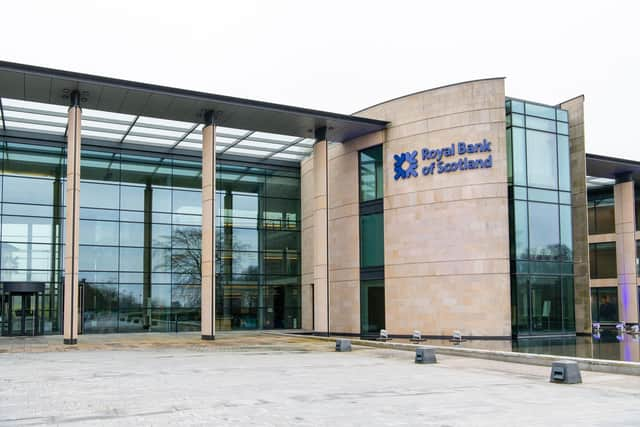Taxpayer stake in RBS owner NatWest falls below 60% after share sale
and live on Freeview channel 276
Ministers signed off the sale on Thursday for 190.5p a share, as part of a commitment to return the bank to the private sector by 2025. The move was revealed in a stock market announcement on Friday morning.
The deal sees the bank buy back 591 million shares from the government, leaving the taxpayer with a stake of 59.8 per cent compared with 61.7 per cent previously. The government’s current stake is worth about £13bn on current share prices.
Advertisement
Hide AdAdvertisement
Hide AdThe share sale also sees NatWest contributing £500 million to its main pension scheme.


The Treasury initially took an 82 per cent stake in RBS in 2008, for 440p a share, to avoid the bank from collapsing during the height of the financial crisis.
According to the latest estimates from the Office for Budget Responsibility, (OBR) of the £45.8bn spent to prop up the bank during the crisis, the taxpayer is expected to make a loss of £38.8bn.
Last year, just as the coronavirus crisis hit home, the Treasury pushed back a deadline to sell the entire stake by a year, to March 2025, amid stock market turmoil.
Advertisement
Hide AdAdvertisement
Hide AdThe Treasury also missed out on a dividend payment last year, due to regulators banning payouts by financial institutions during the height of the pandemic.
NatWest subsequently declared a dividend in 2021 of 3p a share, handing £225m to the government as the biggest shareholder.
The Treasury has sold shares in RBS twice since 2008, with the last in 2018.
Gary Greenwood, an analyst at brokerage Shore Capital, noted: “The amount purchased is consistent with our current forecasts albeit given this has occurred relatively early in the year so it will have a slightly beneficial impact on the average share count for the year.
Advertisement
Hide AdAdvertisement
Hide Ad“While we welcome this news, it is consistent with our expectations and does not materially change our forecasts or fair value, which currently stands at 190p (including a 10 per cent haircut for political risk associated with the HM Treasury’s stake in the group, which we will consider reducing once HM Treasury has sold sufficient shares that it is no longer deemed to have a controlling interest in the group).”
Last month, NatWest posted a pre-tax operating loss of £351m for 2020. It came after the business took a £3.2bn impairment charge for the year, accounting for loans it expects could fail, to a large extent because of the economic stress caused by Covid-19.
The impairment was below the £3.5bn to £4.5bn previously flagged.
The group also announced plans to withdraw from the Republic of Ireland, where it runs Ulster Bank.
Advertisement
Hide AdAdvertisement
Hide AdA review of the Irish bank found that it would not achieve an acceptable level of returns, NatWest said. It will withdraw from the country, trying to keep job losses at a minimum, but Ulster Bank’s operations in Northern Ireland are unaffected.
NatWest chief executive Alison Rose said the move was not related to Brexit.
A message from the Editor:
Thank you for reading this article. We’re more reliant on your support than ever as the shift in consumer habits brought about by coronavirus impacts our advertisers. If you haven’t already, please consider supporting our trusted, fact-checked journalism by taking out a digital subscription: www.scotsman.com/subscriptions
Comment Guidelines
National World encourages reader discussion on our stories. User feedback, insights and back-and-forth exchanges add a rich layer of context to reporting. Please review our Community Guidelines before commenting.